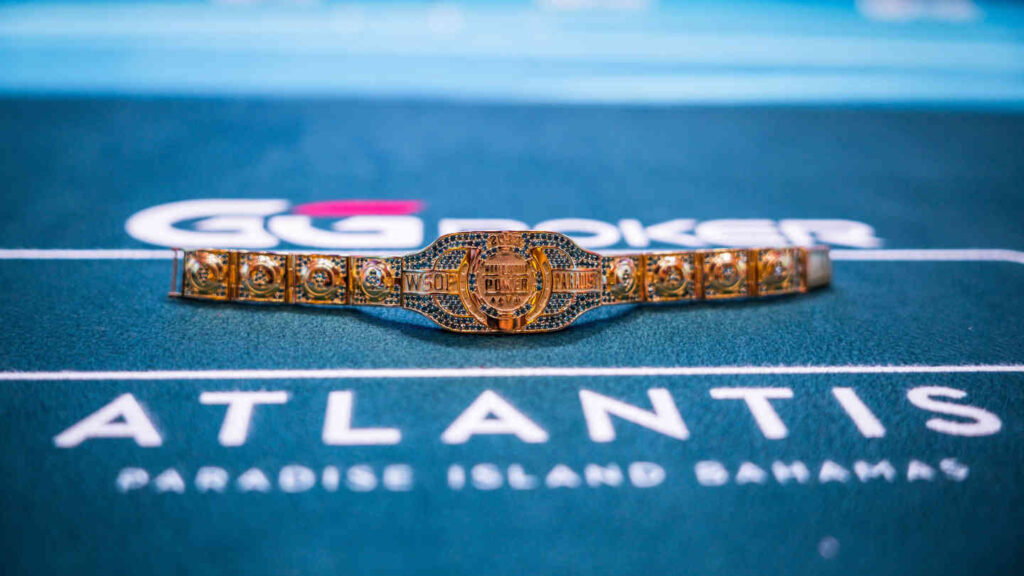Following his participation in the 2024 WSOP Paradise, where he came close to winning another bracelet in the very last event on the schedule, Daniel Negreanu took it to X / Twitter and his YouTube channel to discuss the impact of certain poker rules and the need for change.
The biggest thing that caught Kid Poker’s attention was the “one chip behind” practice, which, although not against rules as they are currently, comes very close to angle shooting.
For those not aware, this practice entails a player betting their entire stack save for one chip. If their opponent doesn’t pick up on the fact and thinks they’re all in, they might proceed to reveal their hand, giving the one-chip player perfect information and allowing them to fold in certain scenarios where they know they’re drawing dead.
While at it, Negreanu also discussed some other rules that he thinks might need changing or reshaping to both protect the integrity of the game and make poker more enjoyable, such as face covers, sunglasses, chip protectors, and shot clocks / stalling.
The One Chip Problem
Those who have been following tournament action lately may have noticed that pros will often make what’s effectively an all-in wager but will leave one chip behind. Because they’re technically not all in, this provides them with some additional options, where they can still fold to make a pay jump, for example.
For example, at a final table, a player bets their entire stack but that one chip with a marginally strong hand. Two players behind them, who cover them, move all in. The original raiser can now fold, knowing they don’t have the best hand, and hope there is an elimination that secures them a pay jump.
The problem with this play, however, arises when the last player to act calls the bet, and, thinking it is an all-in situation, they turn over their hand. While most places will not kill the caller’s hand, the opener now has perfect information and can decide to fold and preserve that one chip instead of busting.
If there is zero chance of winning a hand, keeping one chip and having a chance to play for the big blind ante in one of the next rounds is certainly much more profitable than going out.
The fact of the matter is that pros will rarely make this mistake, but many recreational players might, and the whole situation could influence their overall experience at the table and diminish the appeal of the game.
It’s Legal – But Is It Okay?
The poker tournament rules, as they are right now, allow for this type of play, and Negreanu isn’t even specifically targeting the players who do it. If this gives them an edge and it’s not against the rules, why pass on the opportunity, especially in higher buy-in events?
At the same time, he believes something needs to change so that this type of “exploit” couldn’t be used in tournaments. While admitting he doesn’t have a perfect solution, he proposes things like having a player automatically all-in if they put more than 90% of their stack in the middle or only allowing them to play for the full big blind ante if they have at least two big blinds left.
These solutions create problems of their own, which is why Kid Poker doesn’t claim they’re perfect or should be implemented in those specific ways. However, he is very firm in his stance that the “one chip behind” issue needs to be addressed in a serious manner.
Other players and Negreanu’s followers on social media seem to be divided on the topic. Some agree with Daniel, while others believe that it is each player’s duty to confirm and verify if an opponent is all in before turning over their hand.
It is certain that it’ll take some time before there is an actual change to the rules. In the meantime, Daniel’s advice to everyone is to always bet 99% of their stack when they want to move all in. The upside is much bigger than the downside of potentially not winning that one extra chip when you win a pot.
This is not to say that Kid Poker endorses the practice, but he’s trying to at least make more players aware of it so that they can protect themselves and maybe even use it. After all, if it is not against the rules and the rules do not change, why allow others to pick up that additional EV and pass on the opportunity yourself?
Reinventing Poker Clocks
Another big issue that Negreanu discusses is that of shot clocks. The introduction of shot clocks was supposed to help deal with stalling in poker, allowing players only a certain amount of time to act and forcing them to use time banks (which come in limited supply) when they need more time to think.
To some degree, shot clocks have achieved their goal, but they’re not the great solution everyone was hoping for. This is because some players will still use the maximum time allotted to them on a given street before having to use a time bank, even when they know what they’re going to do within the first few seconds.
They do this mostly to balance things out so that their opponents can’t pick up on any timing tells. The side effect of this, however, is that hands still take a long time to complete, and the action can get really slow, especially when there are multiple players doing this.
So, instead of shot clocks as we have them today, Negreanu proposes an approach more similar to chess clocks, where players are given a certain total amount of time that they can use however they like.
For example, everyone has 10 seconds to act on each street, plus they can use however much of their total time they have whenever they want. Once that extra time is out, though, they will have to make all decisions within those original 10 seconds until they reach the point where some extra time is added to everyone’s clocks.
This approach not only punishes unnecessary stalling but also rewards players who play quickly, as they can accumulate more time on their clocks and save it for when they really need it, i.e. when they face an actual difficult decision.
While implementing this could be challenging, it certainly sounds like a fairer system that could help speed up the play. It would discourage players from spending valuable seconds on decisions they can make quickly while rewarding those who help improve the pace of play.
Poker Rules Are Not Set in Stone
Whether you agree with all of Negreanu’s points or not, some of them are certainly worth thinking about, at the very least. While it is understandable that every player primarily cares for their own success at a table, the broader aspect of the game mustn’t be overlooked.
Keeping things fun and enjoyable and ensuring recreational players don’t feel like they’re being taken advantage of – all of these are important for poker to thrive in the long term.
The good news is, the game we all love so much has changed a lot over the years and it will continue to do so. These things tend to happen only after something is actually recognized and acknowledged as an actual problem, which may not be ideal, but it is usually better than keeping status quo just because it might be easier to do so.


